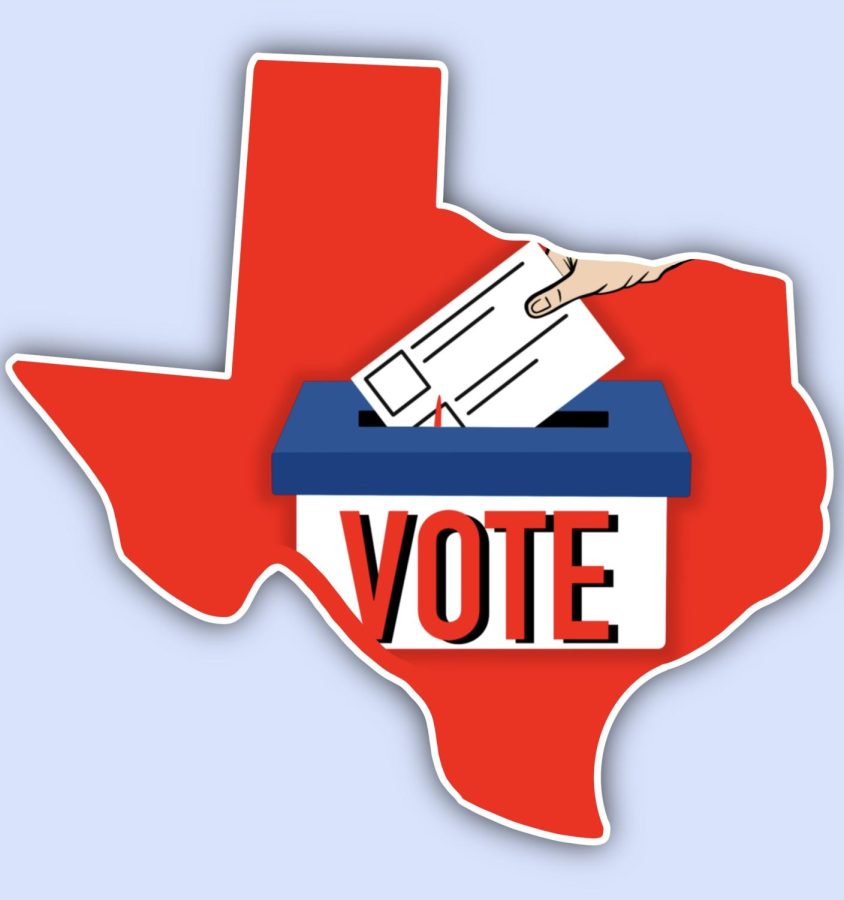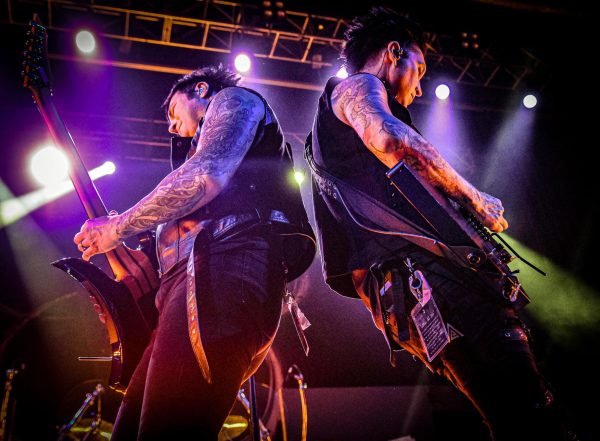Students express opinions on electoral process
March 1, 2022
The 2022 primary elections are scheduled for Tuesday, March 1. Primary elections serve as a way for the Republican and Democratic parties to choose candidates for various offices, who will then face off in the general election.
The 2022 primaries are taking place in an off-year election i.e., during a year with no presidential election. Overall voter turnout tends to be lower in these elections. The Texas Tribune reports that, as of Feb. 24, only 7.3% of Texas’ registered voters have cast their ballot in person.
While off-year voter turnouts tend to be low for the overall population, voter turnout rates amongst younger voters, including college students, tend to be low all across the board. The U.S. Census Bureau reports that the voter turnout rate in the 2020 general elections in the 18-24-year-old category was 51.4%. While this turnout rate has been on the higher end for the demographic group, it was still much lower than voter turnout for other age groups.
Sophomore Sofi Cavenaile explained why this may be the case, attributing the lack of political participation to accessibility and understanding of the electoral process.
“[College] comes with a lot of new responsibilities … so I understand [the low voter turnout]. It is a little bit disappointing, but I think that mostly just comes back to [voting] not being very accessible or understandable to people who are our age,” Cavenaile said. “I think that the electoral process is very complicated and it’s not very accessible to the general person. I think it’s generally a good thing though, to have your citizens involved with your government process … generally good, kind of hard to get around though.”
Clarisse Cabagay, a sophomore computer science major, attributed low participation rates to feelings of lack of control amongst young voters.
“There’s a lot of news out there that can be overwhelming, especially to people our age, especially since we’re still on the younger end of the generation. It seems we don’t have as much pull — there’s like a lot of things that we can’t do right now. And there’s this idea that, because of the way things have always been, it’s gonna be hard to change them,” Cabagay said. “But I think that’s the mentality we need to be fighting against.”
Chemical engineering major Tejas Narayanan further emphasized the importance of access to accurate information when it comes to voting.
“I [feel] the electoral process is kind of confusing. I feel like I need to be thoroughly educated in it to make a good decision and I kind of struggle sometimes to find those resources,” Narayanan said. “As first-time voters, for most of us, it’s really important that we have a good foundation … but I also think it goes back to being knowledgeable and aware [of] how to find those resources to make educated decisions in voting.”
Students further expressed uncertainty about the primary elections.
“I don’t feel that I am as informed as I should be. I feel if there were more outlets, more opportunities [to learn about elections], that is obviously something that I would jump on to get as much information as possible before I make a decision … as important as my vote,” senior Rian Rios said.
Hanan Mohammad, a sophomore biology major, echoed a similar opinion.
“I think I’m [somewhat] informed. I’m not as informed as I’d like to be,” Mohammad said.
Mohammad further explained that the state’s conservative political tendencies can sometimes be disappointing.
Sophomore Cavenaile, whose political ideas also do not resonate with the common Texan ideology, felt a similar way.
“I would say with my opinion, which is kind of not the Texas opinion, I feel like my voice is [drowned out] every single election, and yet, every single election I go out and vote in the hopes that maybe someday it won’t be drowned out. So yeah, it is pretty frustrating,” Cavenaile said.
Despite this uncertainty and lack of accessible information, students pointed out the importance of voting.
“I do think it’s important to [vote] … because if all of us say it doesn’t matter, then nothing will happen,” Mohammad said.
Both Narayanan and Cavenaile explained that voting is an important form of civic engagement.
“It’s my civic duty. I have to be involved with this process. I’m really lucky to be in a country that allows you to have a say in [the] government, so I need to exercise that right,” Cavenaile said.
Cabagay expressed the importance of mobilizing young people to get out and cast their ballot, adding that young voters will be a primary cause for political change in Texas as the state could start moving away from its conservative voting history.
“I just think it’s really important, especially for people in our age group, to be voting right now. I think the young voice is something that’s probably gonna transform the political landscape of Texas over the next few years,” Cabagay said.
Source: (https://www.texastribune.org/2022/02/25/texas-election-turnout/ )












